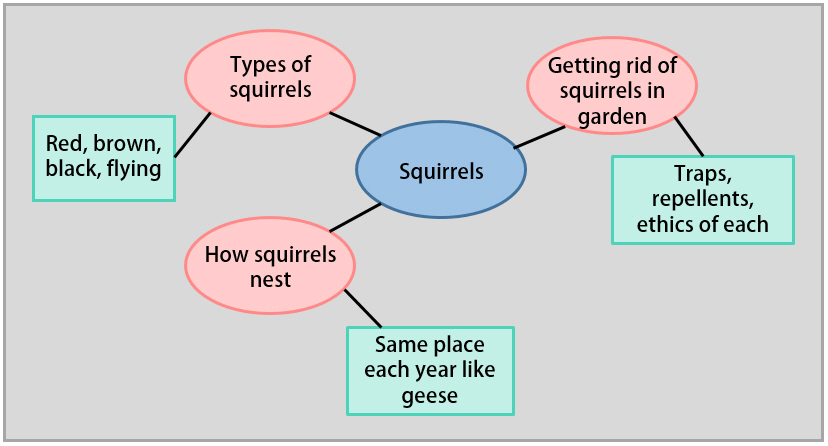The Professor’s Perch: Quit Facebook and Start Writing Again with Prewriting Strategies
By Dr. Francesco Crocco
The Professor’s Perch is a weekly column offering teaching tips for how to use the Excelsior OWL to help students improve their reading and writing skills.

If you’re like me, when it comes to writing, very often you hit the proverbial wall. Writer’s block can leave you discouraged and set you on a procrastination binge. Before you know it, you’ve washed the dishes, folded the laundry, balanced your checkbook, and updated your Facebook page. The day has come and gone, and you haven’t written a single word.
Let’s face it. Writing can be intimidating. The more complicated and high-stakes the assignment, the harder it can be to get started. Luckily, there are proven strategies that can help you get through writer’s block and even improve your writing. In the composition community, we call these strategies “prewriting.”
Prewriting is writing that you do before you write in order to a) get you writing and b) prepare you to write better. Experienced writers use pre-writingto brainstorm, map out concepts, explore and clarify ideas, develop an organization plan, respond to texts, take notes, orall of the above.
The Excelsior OWL section on Prewriting Strategies covers some of the most common prewriting strategies. These include:
- Journaling: This strategy is an excellent way to record and process your thoughts after an experience. Using a personal journal, jot down and reflect on ideas that come up after reading a book, listening to a podcast, or hearing a lecture.
- Freewriting: Freewriting is unstructured writing about anything that comes to mind. Let’s say you have to write an essay on a topic of your choice. You might write down whatever comes to mind without concern for spelling, grammar, or formatting. This is an excellent way to generate ideas without the stress of worrying about how good they are. By removing the judgment stage, you are able to write more freely. Afterwards, you can go back, sort through, and pull out the ideas you want to keep and develop for an essay.
- Brainstorming: Brainstorming is a more focused form of free-writing. Basically, with brainstorming you write down any ideas you have about a specific topic. Afterwards, you can evaluate what you wrote and keep what you like for your essay draft.
- Listing: Making a list is a simple way to develop ideas. For instance, if you’re writing about how to address global warming, you might make a list of all the factors that contribute to it.
- Mapping or Diagramming: Mapping and diagramming are methods to visualize relationships between ideas by using text bubbles and connecting lines. For instance, you might write “mammals” in a main text bubble and branch out to three subordinate bubbles that list characteristics of mammals (e.g., warm blooded, endothermic vertebrates, and have hair or fur).
- Outlining: An outline uses simple rules to visually lay out your argument, supporting reasons, and evidence in a logical fashion. An outline requires a pretty good grasp of the content that will go into your essay. For this reason, I recommend using this strategy after using other pre-writing strategies (like brainstorming and mapping) to generate and develop ideas. The advantage to creating an outline before you write is that you will have a roadmap for what you plan to write. This will help ensure that your argument stays on track and doesn’t suffer from blind spots. (Creating a reverse outline from the things you read is also a great strategy for improving your reading comprehension.)
In addition to these strategies, the Excelsior OWL section on Prewriting Strategies also covers Asking Defining Questions and Noting Pros & Cons.
I highly recommend pre-writing because it will help you improve your writing while saving time and frustration! Try using each of these strategies individually or in combination.
If you are an educator, I strongly encourage you to incorporate time for pre-writing in your assignments. You can have students do it in class, individually, in small groups, or as a low-stakes homework assignment. Scaffolding assignments by incorporating stages such as pre-writing is an important strategy for Creating Effective Writing Assignments.
So, the next time you feel the urge to browse Facebook because the dreaded writer’s block has you stuck, navigate over to the Excelsior OWL section on Prewriting Strategies and choose your favorite one to help you start writing again.
